By Jeremy Menzies
After telling you about the Track Department through the years, this month we take a look back at the Overhead Line Department. The focus of this group is to maintain our “tracks in the sky” which provide electric power to the LRVs, historic streetcars and trolley buses that are critical to keeping San Francisco moving.
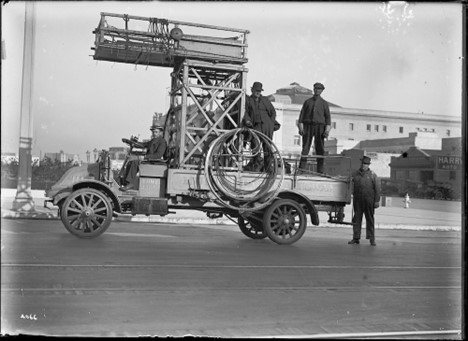
SF Municipal Railway Tower Truck No. 1 on Van Ness Avenue circa 1917.
The earliest overhead transit power lines were built for San Francisco’s first electric streetcar line, which opened in 1892. As more electric streetcar lines came into service over the years, the electric grid above them expanded into a complex network requiring more power and more maintenance. Within 20 years, electric streetcars provided nearly all transit in the city.
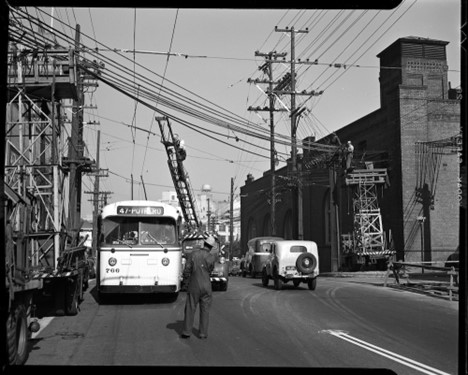
A complicated overhead line operation at Bryant and Alameda, 1951. The building on the right- built as a power generating plant in 1893 -was home to the Overhead Lines department until just a few years ago.
In the late 1940s, many of the city’s streetcar lines were replaced by electric trolley buses. While they were able to tap into the existing power supply system, these buses made it necessary to expand the overhead line system further. Unlike streetcars, trolley buses need two wires to run, so all the new trolley routes required new overhead equipment. 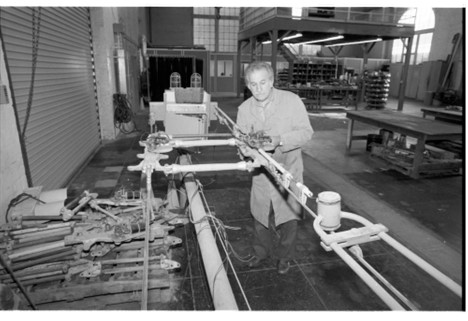
Lineman Ralph Greco making repairs to a section of trolley overhead inside the shop in 1985.
In addition to wires, the department maintains and repairs all the auxiliary equipment that allows streetcars, LRVs and trolley buses to intersect and make turns, including switches, crossings and breakers.
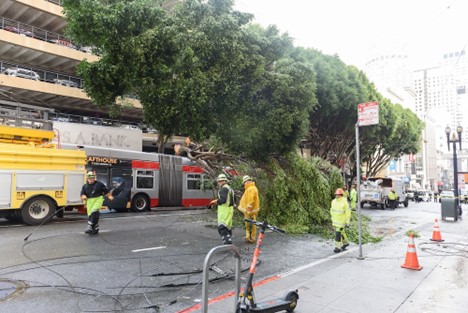
An Overhead Line Dept. team clears trolley coach wires downed by a fallen tree on Sutter and Stockton Streets during winter storms in January 2023.
Emergency response has always been another important and difficult part of the job. Without a power line, trolley buses and subway trains are stopped dead in their tracks. So a speedy response is essential.
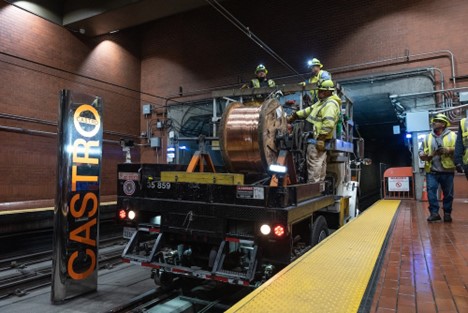
Crews installing new wire in the Market Street Subway at Castro Station during a Fix It Week shutdown in 2022.
Over the years, the department has improved equipment and practices, but inspecting and maintaining the lines remains at the core of its work. Preventative maintenance like stringing new sections of wire in problem areas have played a critical role in improving system reliability.
So we look to the Overhead Line team to make sure the equipment above keeps everything rolling on the tracks and the streets.
Published June 02, 2023 at 02:20AM
https://ift.tt/KQGT7mq
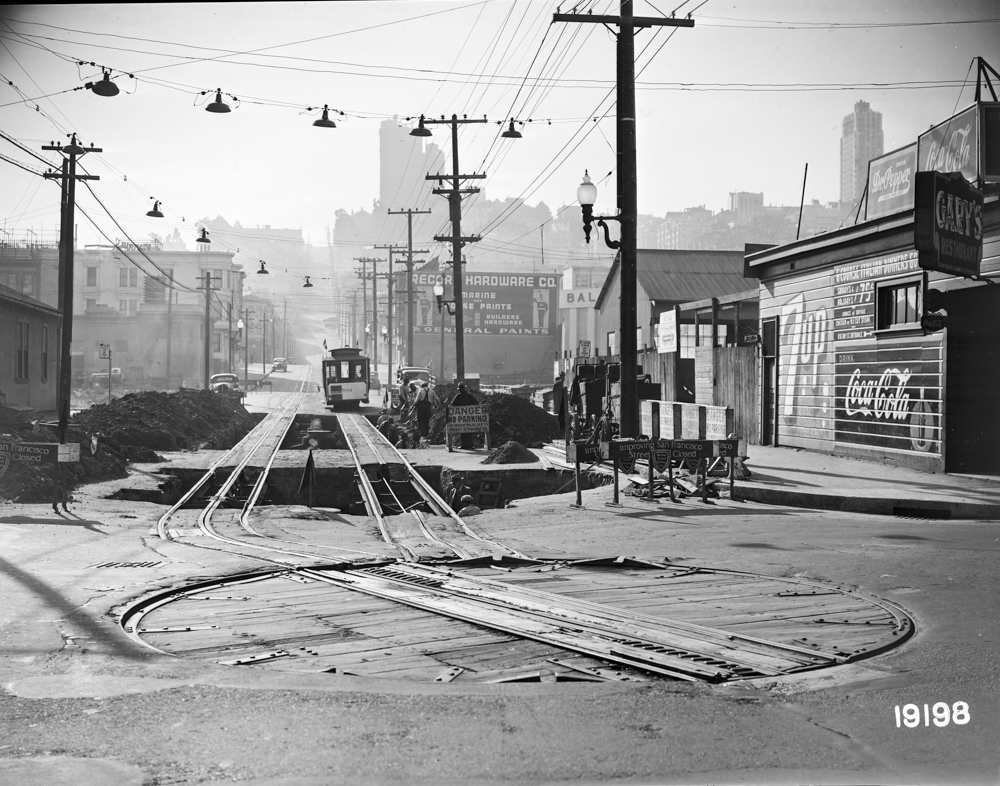
No comments:
Post a Comment